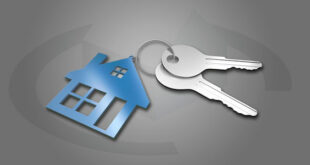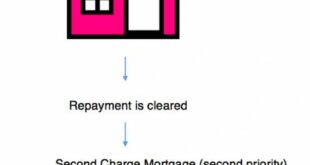Contents
Understanding Second Charge Mortgages
When securing a loan against your property, most people are familiar with first-charge mortgages used to purchase a home. However, second-charge mortgages are another option many homeowners might not be aware of. This post will delve into what second-charge mortgages are, how they work, and when you might consider using one.
What Is a Second Charge Mortgage?
A second charge mortgage, also known as a “second mortgage” or a “secured loan,” is a financial product that allows homeowners to borrow against the equity they have in their property. Unlike first-charge mortgages, which take precedence, second-charge mortgages come secondary in line if you default on your payments. They are typically used when you already have a primary mortgage but need additional funds for a specific purpose, such as home improvements or debt consolidation.
When to Consider a Second Charge Mortgage
Second-charge mortgages can be a valuable financial tool in various situations. Here are some scenarios where you might consider taking out a second charge mortgage:
- Home Improvements: If you want to renovate or extend your Home, a second-charge mortgage can provide the necessary funds.
- Debt Consolidation: Combining high-interest debts into a second-charge mortgage with a lower interest rate can help you manage your finances more effectively.
- Raising Capital: To start a new business, invest in education, or any other significant expenditure, a second-charge mortgage can provide the capital you need.
- Adverse Credit: If your credit history isn’t ideal, a second-charge mortgage might be more accessible than a traditional unsecured loan.

The Benefits and Risks of Second Charge Mortgages
Before jumping into a second charge mortgage, it’s essential to weigh the pros and cons:
Benefits:
- Lower Interest Rates: Second-charge mortgages typically offer lower interest rates than unsecured loans or credit cards.
- Larger Loan Amounts: You can borrow more significant sums with a second-charge mortgage.
- Extended Repayment Terms: Second-charge mortgages often come with longer repayment periods, making monthly payments more manageable.
Risks:
- Your Home Is at Risk: If you default on payments, your property may risk repossession.
- Added Costs: Second-charge mortgages come with arrangement fees, valuation fees, and other associated costs.
How to Apply for a Second Charge Mortgage
Applying for a second charge mortgage involves several steps:
- Assessment: First, you must assess your needs and your property’s equity. Determine the amount you want to borrow and your ability to repay the loan.
- Find a Lender: Research and compare lenders offering second-charge mortgages. Consider factors like interest rates, terms, and fees.
- Application: Complete the lender’s application process. You’ll need to provide details about your financial situation and property.
- Valuation: Your property will be evaluated to determine its current market value.
- Approval: If your application is approved, the lender will provide a formal offer, including terms and conditions.
- Completion: Once you accept the offer, the funds are released, and your second charge mortgage is in effect.
In conclusion, second-charge mortgages are a viable option for homeowners looking to leverage the equity in their property for various financial needs. However, it’s crucial to consider the benefits and risks carefully and thoroughly research and compare lenders before committing to such an arrangement. A second-charge mortgage can be valuable for achieving your financial goals if used wisely.

Understanding Second Charge Mortgages
When it comes to homeownership and property investments, understanding the various types of mortgages is essential. One such option that homeowners often consider is a second-charge mortgage. This comprehensive guide will delve into the details of second-charge mortgages, how they work, and when you might consider using them.
What is a Second Charge Mortgage?
A second charge mortgage, often referred to as a “second mortgage” or “homeowner loan,” is a financial product that allows homeowners to access the equity in their property beyond their primary mortgage. Unlike a remortgage, where you replace your existing mortgage with a new one, a second charge mortgage is an additional loan that runs alongside your current mortgage.
When to Consider a Second Charge Mortgage
There are several situations where homeowners might consider a second-charge mortgage. This financial product can be a viable option when you need access to a lump sum but want to avoid changing your primary mortgage terms. Typical scenarios where a second-charge mortgage might make sense include home renovations, debt consolidation, and funding significant expenses like education or business investments.
Pros and Cons of Second Charge Mortgages
Before you decide to go for a second charge mortgage, it’s essential to weigh the advantages and disadvantages:
Pros:
- Retain Low Mortgage Rates: By keeping your primary mortgage intact, you can maintain the low interest rate you secured when you first purchased your Home.
- Flexible Use of Funds: The funds from a second-charge mortgage can be used for various purposes, giving you more financial flexibility.
- No Impact on Existing Mortgage: Your primary mortgage terms and conditions remain unchanged, so there’s no need to refinance.
Cons:
- Higher Interest Rates: Second-charge mortgages typically have higher interest rates than first mortgages.
- Risk of Repossession: If you can’t meet the repayments, there’s a risk of losing your Home, as it’s used as collateral.
- Long-Term Cost: Over time, the interest accrued on a second-charge mortgage can make it more expensive than other borrowing options.

How to Obtain a Second Charge Mortgage
Getting a second-charge mortgage involves a thorough application and approval process. You must assess your financial situation, gather the necessary documents, and work with a mortgage broker or lender. Be prepared to provide information about your property, income, and credit history. The lender will evaluate your application and, if approved, set the terms for your second charge mortgage.
In conclusion, second-charge mortgages are a valuable financial tool that can help homeowners tap into their property’s equity without altering their primary mortgage. However, it’s crucial to carefully consider your financial situation and goals before pursuing this option, as it comes with both advantages and disadvantages. Always consult a financial advisor or mortgage specialist to determine if a second-charge mortgage suits your circumstances.
 Ahammed World Afffaires
Ahammed World Afffaires


